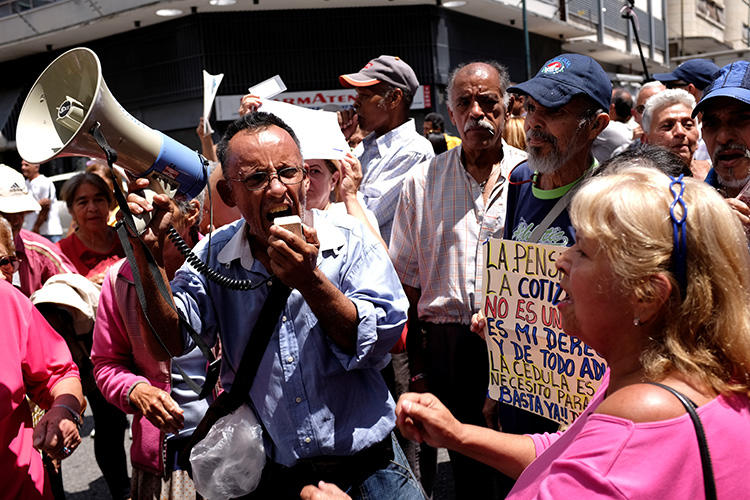New York, September 7, 2018–Venezuelan authorities should immediately release and drop all charges against freelance photographer Jesus Medina Ezaine, the Committee to Protect Journalists said today. A court in the capital Caracas on August 31 ordered Medina to military prison; he was detained August 29 after working on a reporting project at a hospital and charged with crimes including inciting hate, according to reports.
On August 29, agents of the Servicio Bolivariano de Inteligencia Nacional (SEBIN), Venezuela’s intelligence service, detained Medina at a subway station in Caracas, according to news reports. In a video posted to Twitter by Venezuela’s National Union of Press Workers (SNTP), Peruvian journalist Juana Avellaneda described Medina’s arrest and said he had been helping her and a Peruvian colleague with a reporting project in Caracas.
Avellaneda said she left the hospital where the journalists were working on an investigative project and met Medina and the other Peruvian journalist outside. The three walked to a nearby subway station and were waiting for the subway when a group of armed men approached them, identified Medina and asked him if he knew the Peruvians. He responded that he did not because “he knew that if he said yes, we would be jailed with him today,” Avellaneda said. The agents then took Medina into custody.
At the August 31 hearing, the 13th Court of Control of Caracas formally charged Medina with money laundering, criminal association, illegal enrichment against acts of public administration, and inciting hate, according to reports. The court sent him to the Ramo Verde military prison outside Caracas pending trial, María Fernanda Torres, a lawyer with Venezuelan legal rights organization Foro Penal who is part of Medina’s defense team, wrote on Twitter.
“Venezuelan authorities should immediately drop the absurd charges against Jesus Medina Ezaine and stop criminalizing independent journalism,” said CPJ Central and South America Coordinator Natalie Southwick. “Critical reporting is not hate speech. Venezuela’s journalists must be free to work without facing years in prison simply for reporting on something the government doesn’t like.”
Under Venezuela’s vague anti-hate law, passed in November 2017, the crime of “inciting hate” in the press or through social media is punishable by up to 20 years in prison.
Torres told Venezuelan daily newspaper El Nacional that the legal team has 45 days to submit materials to the public prosecutor’s office in Medina’s defense.
None of the numbers listed for the SEBIN were connected at the time of publication, and CPJ was unable to find another way to contact the agency.
Medina was previously detained by Venezuelan authorities in October 2017 while reporting at a prison in northern Venezuela with two international journalists, according to reports. He then went missing on November 4 and, after he was found on a highway outside Caracas two days later, said his abductors tortured him and threatened him with death, according to reports.
Medina’s photographs and videos have appeared on the website Dólar Today, which is based in the U.S. and publishes articles critical of Venezuela’s socialist government. The site also provides information on the country’s black-market exchange rate.
The Venezuelan government has previously used money laundering allegations to criminalize journalists. Online and radio journalist Braulio Jatar Alonso was arrested in September 2016 one day after reporting on an anti-government protest, and spent almost nine months in jail on charges of money laundering.
